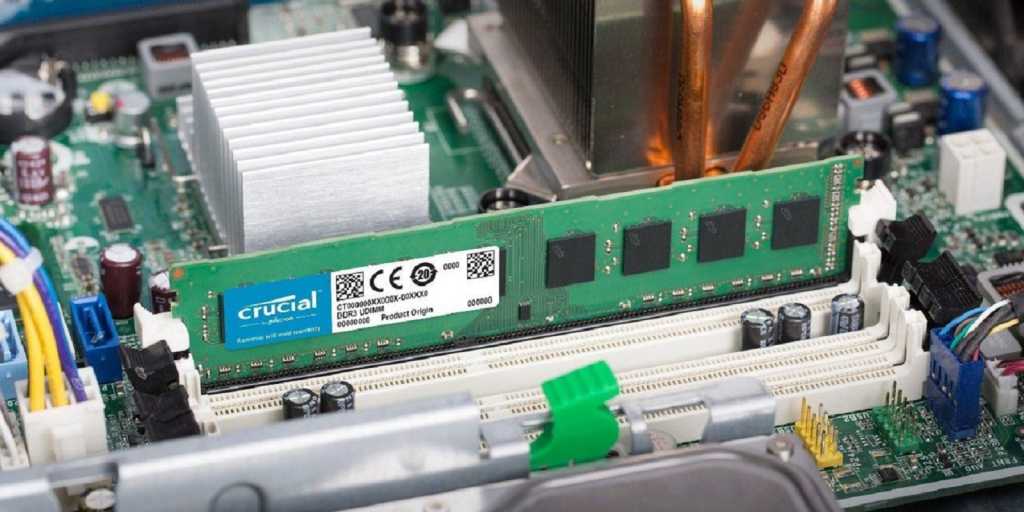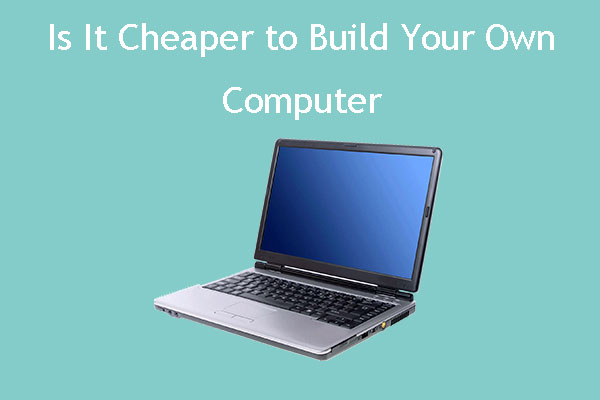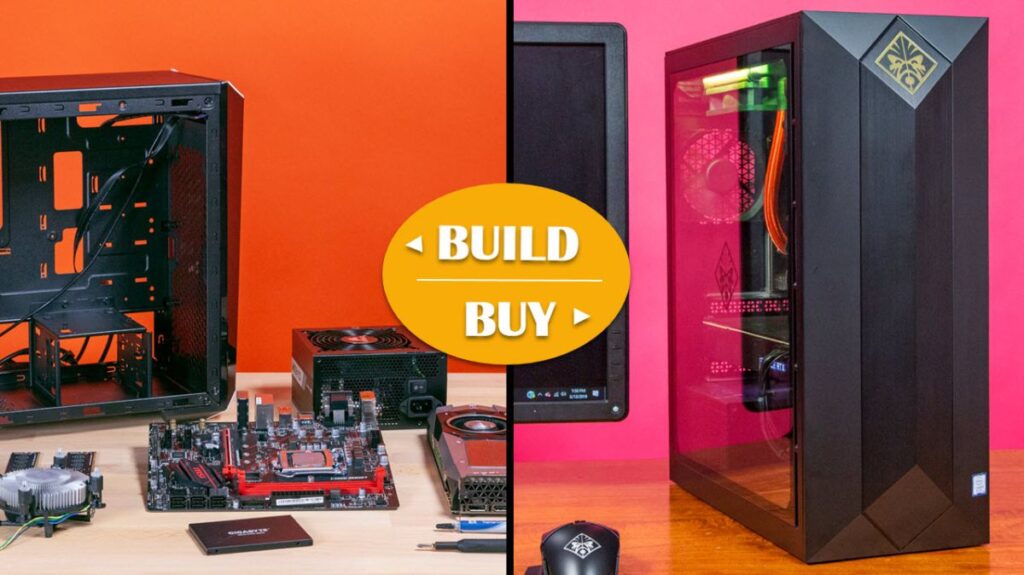So you’re at a crossroads with your trusty old PC, wondering whether it’s time to upgrade or ditch it for a shiny new one. The question arises: is it cheaper to upgrade your PC or buy a new one? It’s a dilemma many of us have faced, and while there’s no one-size-fits-all answer, let’s explore the pros and cons of both options to help you make an informed decision.

This image is property of www.pcworld.com.
Factors to Consider
When it comes to deciding whether to upgrade your PC or buy a new one, there are several factors you should consider. These factors can help you make an informed decision and ensure that you get the most value for your money. Some of the key factors you should take into account include your current PC specifications, compatibility with upgrades, the cost of upgrades, and future-proofing.
Current PC Specifications
Before making any decisions, it’s important to assess your current PC specifications. This includes taking note of the processor, RAM, storage capacity, and graphics card, among other components. Understanding the capabilities and limitations of your current PC will help you determine whether upgrading specific components will significantly enhance its performance or if it’s time to consider purchasing a new one.
Compatibility with Upgrades
Another crucial factor to consider is the compatibility of your current PC with potential upgrades. Not all PCs are created equal, and some may have limitations when it comes to upgrading certain components. For example, if your PC is quite old, it may not have the necessary connections or slots to accommodate newer hardware. By assessing the compatibility of your PC with upgrades, you can determine whether the investment in upgrading is worthwhile or if it’s time to invest in a new PC.
Cost of Upgrades
One of the main considerations for any upgrade or purchase decision is cost. Upgrading specific components of your PC can be a cost-effective way to boost performance without breaking the bank. However, it’s essential to compare the cost of each upgrade against the price of a new PC with similar specifications. This will help you determine whether the upgrades you have in mind are economically viable or if it’s more cost-effective to invest in a new PC altogether.
Future-proofing
Future-proofing is another crucial factor to consider when deciding whether to upgrade or buy a new PC. Technology is constantly evolving, and what may be considered high-end today could become outdated within a couple of years. If your current PC is already outdated and lacks the potential to accommodate future upgrades, it may be a wiser choice to invest in a new PC that can offer you better longevity and future capabilities.

This image is property of www.pcworld.com.
Upgrading PC
Now that you’ve considered the key factors, let’s delve into the specifics of upgrading your PC. Upgrading offers several benefits, including improved performance, increased storage capacity, better graphics capabilities, and enhanced overall user experience. To make the most out of your upgrade, it’s important to identify the components that would benefit most from an upgrade, consider the associated costs, and be aware of any potential compatibility issues.
Benefits of Upgrading
Upgrading your PC can breathe new life into it and significantly improve its performance. A processor upgrade can enhance multitasking capabilities and overall speed, while increasing the amount of RAM can improve system responsiveness. Upgrading the graphics card can enhance gaming and graphical capabilities, and adding additional storage can provide more space for your files and applications. These enhancements can result in a smoother and more enjoyable computing experience.
Components to Upgrade
When upgrading your PC, it’s crucial to identify the components that would most benefit from an upgrade. This will vary depending on your specific needs and usage patterns. For example, if you primarily use your PC for gaming, investing in a high-performance graphics card may deliver the biggest impact on your gaming experience. On the other hand, if you work with resource-intensive applications, upgrading your processor and RAM may be a more beneficial choice. Assess your requirements and prioritize the components that will provide the most significant improvements.
Cost of Upgrades
While upgrading specific components of your PC can be a cost-effective way to boost its performance, it’s still essential to consider the associated costs. The cost of upgrades can vary significantly depending on the specific components you choose, their quality, and any additional installation or labor fees. It’s advisable to research and compare prices from different vendors to ensure you get the best value for your money. Additionally, consider the potential lifespan of the upgraded components and whether the investment is worthwhile in the long run.
Potential Compatibility Issues
When upgrading your PC, it’s crucial to be aware of potential compatibility issues. Not all components are compatible with every PC, especially if your PC is older or has specific limitations. Before purchasing any upgrades, make sure to verify their compatibility with your PC’s motherboard, power supply, and other existing components. Look for any software or driver requirements as well to avoid any last-minute surprises. Research thoroughly and consult with experts if needed to ensure a smooth and successful upgrade process.

This image is property of www.partitionwizard.com.
Buying a New PC
If upgrading your PC doesn’t seem to be the most suitable option, it may be time to consider buying a new one. Buying a new PC offers several benefits, including the latest technology, improved overall performance, warranty coverage, and the opportunity to customize your specifications. However, it’s important to carefully consider your needs, budget, and long-term investment goals before making a decision.
Benefits of Buying New
Investing in a new PC allows you to take advantage of the latest technological advancements. New PCs often come equipped with the latest processors, graphics cards, and other hardware components, offering improved performance and efficiency. Additionally, buying new usually ensures that you receive warranty coverage, providing you with peace of mind and support should any issues arise. Furthermore, buying new allows you to customize your specifications to align with your specific needs and preferences.
Considerations for New PC
When buying a new PC, it’s important to consider your specific needs and usage requirements. Take into account the tasks you’ll be performing on your PC, such as gaming, video editing, or office work, and choose the specifications accordingly. Assess storage requirements, RAM capacity, graphics capabilities, and processor performance to ensure you select a PC that can handle your workload effectively. It’s also advisable to consider the size and form factor of the PC to ensure it fits seamlessly into your workspace.
Cost of New PC
The cost of a new PC can vary significantly depending on the brand, specifications, and any additional features or functionalities. It’s essential to determine your budget and research different options within that range. Compare prices from various vendors and consider the overall value you’ll be receiving for your investment. While buying a new PC may require a more substantial upfront cost compared to upgrading, it can provide you with a more complete and future-proof solution.
Long-term Investment
Investing in a new PC should be seen as a long-term investment. When purchasing a new PC, you’re not only considering its immediate benefits but also its longevity and ability to accommodate future upgrades. Consider the scalability and upgrade potential of the PC to ensure that it can support evolving technology and your changing needs over time. While upgrading can be a more cost-effective solution in the short term, a new PC may provide a more sustainable and future-proof option in the long run.

This image is property of cdn.mos.cms.futurecdn.net.
Comparison and Analysis
Now that we have explored both upgrading and buying a new PC, let’s compare and analyze both options in terms of cost, performance, and when to choose which option.
Cost Comparison
In terms of cost, upgrading specific components of your PC can be a more budget-friendly option compared to buying a new PC. By only replacing or upgrading the necessary components, you can save money while still improving performance. However, it’s important to evaluate the overall cost of the upgrades, including any installation or labor fees, and compare it to the price of a new PC with similar specifications. Depending on your specific needs and the prices available in the market, buying a new PC may offer a more cost-effective solution.
Performance Comparison
When it comes to performance, upgrading your PC allows you to specifically target the components that need improvement. This means that you can significantly enhance the performance in those specific areas, such as gaming, multitasking, or processing power. However, upgrading certain components may not address all performance-related issues, especially if other components are outdated or incompatible. Buying a new PC ensures that you receive the latest technology across all components, resulting in overall improved performance.
Upgrade vs. New PC: When to Choose?
The decision to upgrade your PC or buy a new one ultimately depends on several factors, including your budget, specific needs, and long-term goals. If your current PC has sufficient specifications and only requires improvement in specific areas, upgrading may be the most suitable option. However, if your PC is outdated, incompatible with necessary upgrades, or you require a comprehensive improvement across all components, buying a new PC could be a better choice in terms of future-proofing, warranty coverage, and overall performance.
In conclusion, both upgrading your PC and buying a new one have their own advantages and considerations. Assessing your current PC specifications, compatibility with upgrades, and the associated costs will help you determine whether upgrading is a cost-effective solution. However, if your current PC is outdated, limited in upgrade potential, or you require a comprehensive improvement, investing in a new PC could provide you with the latest technology and long-term value. Consider your specific needs, budget, and future goals to make an informed decision that aligns with your requirements.

This image is property of www.cgdirector.com.
